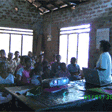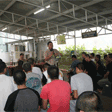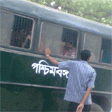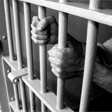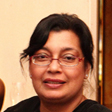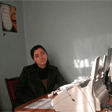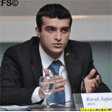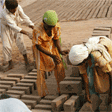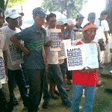2010 Asia JusticeMakers Fellows
|
|
Legal Assistance for Indigent Accused and Juvenile Offenses in VietnamOanh Hoang Ngo (Vietnam) is improving access to counsel for indigent juveniles and strengthening the Vietnamese juvenile justice system by enhancing the professional capacity of lawyers through skills-training courses on juvenile cases. She is also establishing a charitable fund to finance legal assistance for indigent defendants. Read more |
|
|
Legal Aid for Women Pretrial DetaineesH.M. Harshi Chitrangi Perera (Sri Lanka) is building a systematic and competent pool of legal resources to alleviate the problems in the Sri Lankan legal system: lack of respect for the rights of the accused, their lack of knowledge of their rights, and poor training of defense attorneys. She will identify and provide a set of female pre-trial detainees with legal representation, educating female prisoners about their rights during the identification process. She will also compile a study on the state of female prison inmates for publication. Read more |
|
|
Access to Justice for Detainees: A Community Legal Empowerment ApproachAjeng Larasati (Indonesia) is working to ensure that detainees exercise the right to legal counsel granted by the Indonesian Constitution. Collaborating with a detention center in Jakarta, she will create educational tools and enlist a team of lawyers and psychologists to inform the accused about their legal rights and teach them to assert these rights. The team will also train detainees who act as assistants to the prison warden to provide legal services to the accused. Read more |
|
|
Legal Empowerment of Under Trial Prisoners in Sub-JailsBijaya Chanda (India) is mobilizing local lawyers to train underprivileged and marginalized remand prisoners of five sub-jails in Kolkata in procedure to demand their basic legal rights. She is also raising awareness of the legal and constitutional rights of the remand prisoners amongst their families so that they can demand adherence to these rights and protest in cases of violation by the authorities. Read more |
|
|
Applying Decarceration in Iran’s SocietySeyed Mohamad Hassan Razavi (Iran) is attempting to introduce “decarceration”, or alternatives to prison, for minor crimes as a means of social control in Iran. Detention of Iranian males often has devastating effects on their families, typically leaving them without a stable source of income. Through trainings, workshops, roundtables, education, and advertising, he hopes to engage Iran’s judicial sector with the goal of reducing its prison population.* By mutual agreement, IBJ did not provide Mr. Razavi a stipend to finance his project. Read more |
Malaysia Juvenile Justice PanelDato’ Yasmeen Shariff (Malaysia) is working with the government, police, parents, and social workers to provide an alternative to custody for accused juveniles in Kuala Lumpur. Upon arrest, these parties will work together to decide on an alternative, appropriate recourse, such as warning and caution, mediation, family conferencing, counseling or therapeutic treatment. Read more |
|
|
|
Supporting Juvenile Justice Reform in GeorgiaNana Chapidze (Georgia) is working to improve the juvenile criminal justice system in Georgia by establishing a resource center to create an information database and provide direct assistance to juveniles. She is also organizing trainings for legal defenders, preparing and issuing guidelines on juvenile justice for key actors, and creating brochures to raise public awareness about the rights of juvenile detainees. Read more |
|
|
Public Initiatives on Fulfilling of Rights of Prisoners to be Released EarlyRasul Agagasan Jafarov (Azerbaijan) is publicizing the right to early release for prisoners in Azerbaijan by holding trainings for prisoners and their families. He is also assembling a team of lawyers to provide legal assistance to prisoners. Read more |
|
|
Prevention of Torture througb Direct Legal Aid and Human Rights EducationShahanur Islam (Bangladesh) is running training sessions to promote respect for human rights amongst local police, prison officials and lawyers in Dhaka, selecting volunteers from these groups to facilitate awareness-raising activities in the wider community. He is also collaborating with the local legal community to provide legal aid to prisoners from religious and ethnic minorities who have had their rights violated. Read more |
|
|
Legal Literacy and Support to VictimsMuhammad Waqas Abid (Pakistan) is conducting ten seminars in rural areas of Punjab to educate brick kiln workers and agricultural laborers, those most susceptible to legal rights abuse, about their legal rights. He is also collaborating with local lawyers and NGO’s to establish a legal resource center to provide direct case support to the accused. Finally, he is working with local media channels to maximize coverage of legal abuse. Read more |
|
|
Empowering Women Paralegals against Agrarian CriminalizationRosselynn Jae García de la Cruz (Philippines) is creating a paralegal class to train local females as paralegals, so that they may quickly respond to arrests in agrarian communities of the Bondoc Peninsula. The paralegals will ensure the preservation of evidence, gather affidavits, and help farmers navigate the legal process. Read more |
|
|
Judicial and Human Rights Camps (PEOPLE’S CHOICE AWARD WINNER)Junaid Khalid (Pakistan) is establishing “legal camps” throughout Karachi to provide citizens with direct and easily accessible legal advice and counsel. These camps, facilitated by lawyers, government officials, law enforcement and community leaders, will complement an online-based initiative offering citizens a platform to submit legal questions and access electronic legal rights education resources. Read more |

